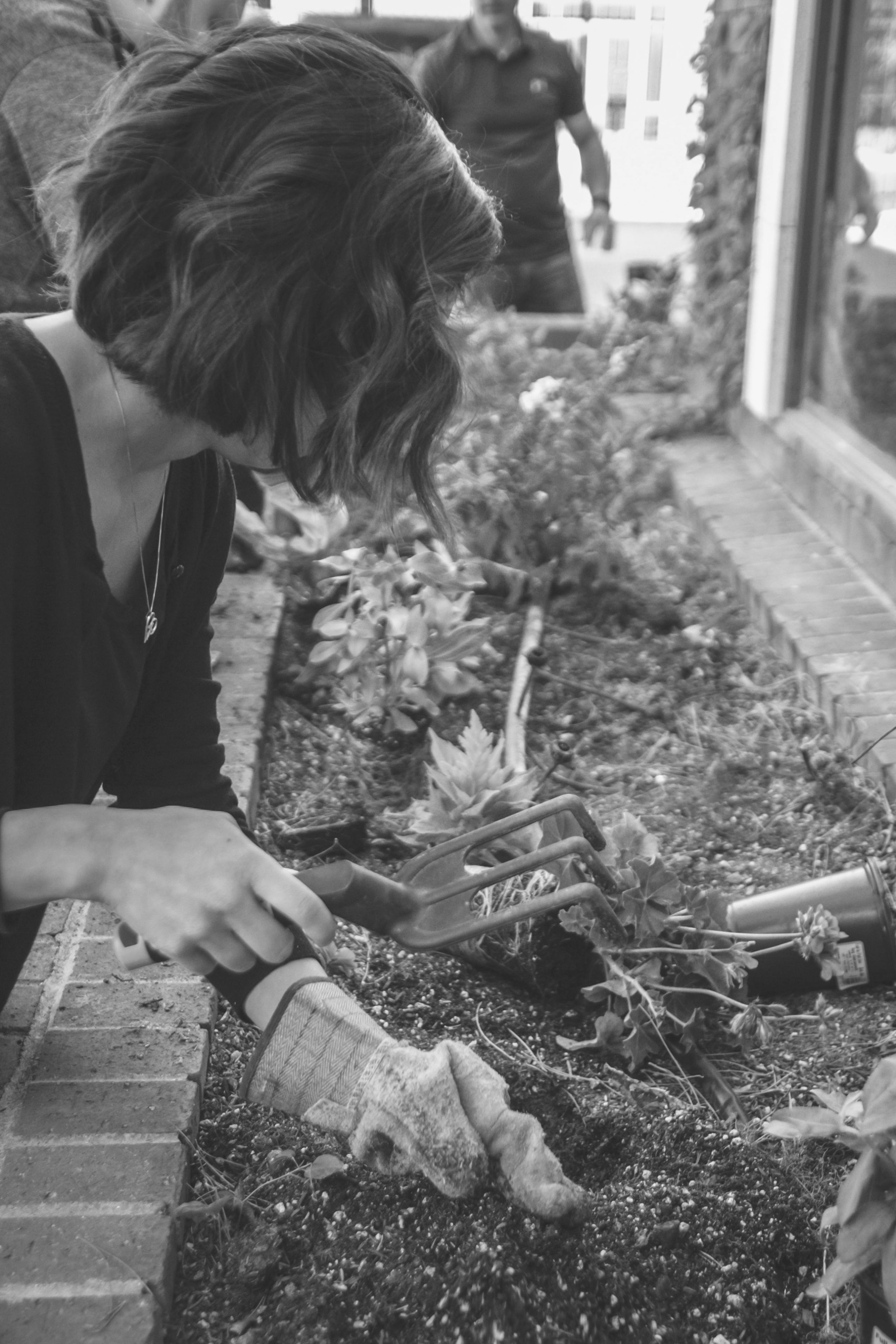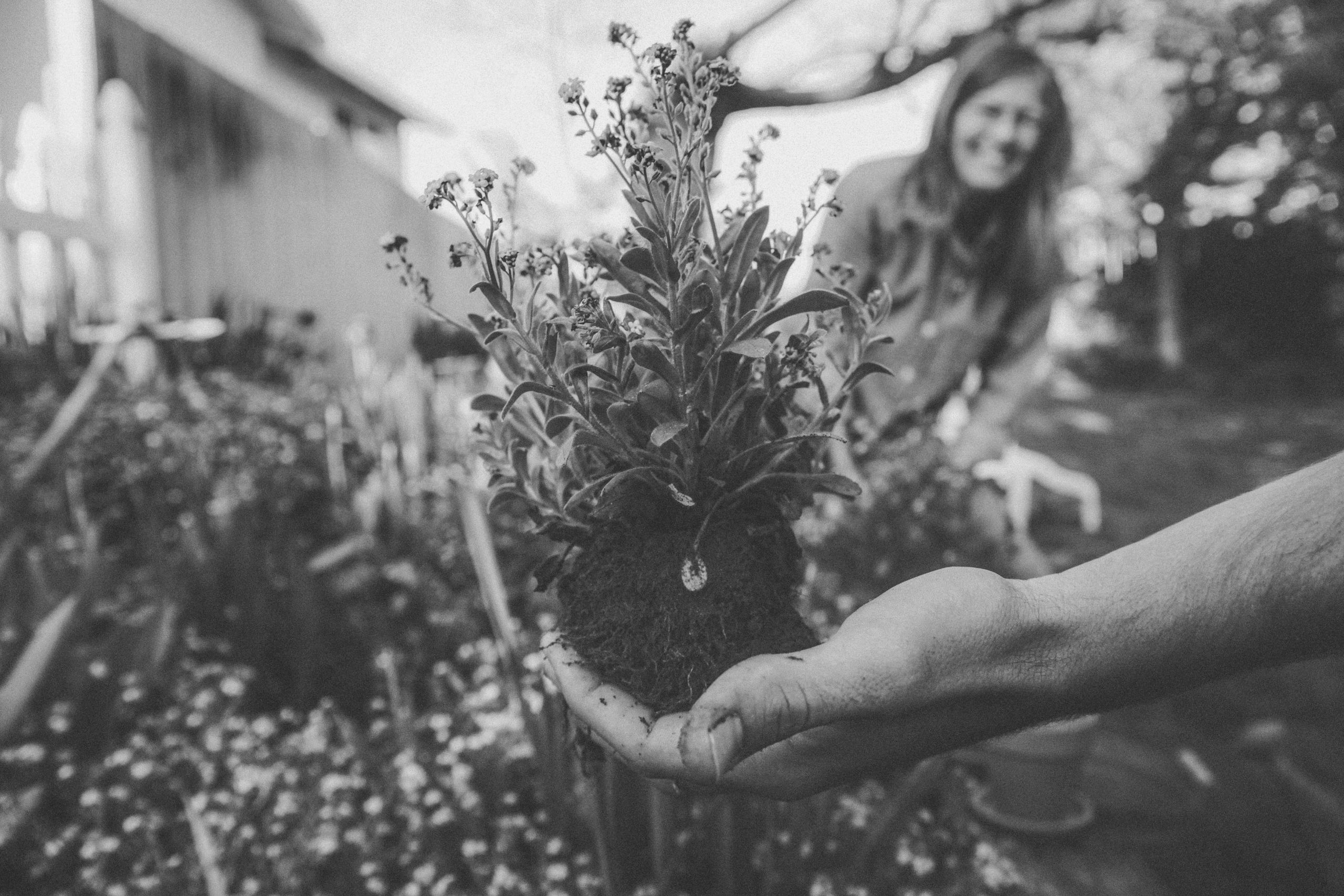Volunteering:
an Introduction
Experiential Education

Objectives
What you will learn about in this module:
- Some statistics about volunteering in Australia
- What ‘volunteering’ is and who a ‘volunteer’ is
- Who can volunteer (and some of the qualities they might need)
- Benefits of volunteering (and some of the skills they might gain)
- A few do’s of volunteering (including maintaining confidentiality)
- Some University of Tasmania websites if you are interested in volunteering
First, a few interesting statistics:
According to the Australian Bureau of Statistics (ABS) (2015), in Australia in 2014:
- 5.8 million people (31% of the population aged over 15) participated in voluntary work.
- Voluntary work contributed 743 million hours to the community.
- People who live outside cities volunteered more than those who live in cities.
- Women (34%) volunteered more than men (29%).
- The younger the person, the more likely they were to volunteer:
-15-17 years: 42%
-35-44 years: 39%
-65-75 years: 35%
- Couples with children (38%) tended to volunteer more than lone [their word] persons (25%) or couples with no children (29%).
The higher the income the more volunteering. - The higher the educational qualification the more volunteering.
- The three top volunteering categories: sport/physical recreation, religious, and welfare/community.
Australia has a strong tradition of volunteering. Volunteers reflect the character of our nation—our distinctly Australian spirit of lending a hand and helping out.
The value of volunteering in money terms
Volunteering is worth a lot, when put into monetary terms. According to the ABS (2017), in 2006 (when the most recent data was collected) volunteering contributed $43 billion to the economy. The 2021 census is likely to include questions that will update this data (ABS 2017).
At the end of this module you will find a few interesting facts about volunteering in Tasmania.

Introduction
Volunteering is a large part of our lives. If we are not volunteers ourselves, then it is likely that we know someone who is a volunteer, or who is the beneficiary of volunteering. In Tasmania, volunteering is the eighth largest industry (Muller & McMahon 2014, p. 2). It is a strong tradition in Australia, and contributes to social, cultural and economic well-being at both the local, community level and at the national level. It is unpaid work that can be done by anyone, anywhere. Volunteers volunteer for many different reasons, and tend to bring special qualities to their role, and can develop skills and attributes that are transferable to other situations. There are laws that cover many aspects of volunteering, and also unwritten ‘rules’ that help to guide volunteers as they fulfil their self-imposed duties.
The best way to find yourself is to lose yourself in the service of others.

What is ‘volunteering’? And who is a ‘volunteer’?
We now know some facts and figures about volunteering, but what is volunteering? Who are volunteers?
The ABS (2015) define a volunteer as:
someone who...willingly gave unpaid help, in the form of time, service or skills, through an organisation or group.
Volunteering Australia (2015, p. 2, their italics), the national peak body for volunteering, define volunteering as follows:
Volunteering is time willingly given for the common good and without financial gain.
If you would like to know exactly what each part of this definition means, follow this link to the Volunteering Australia PDF explaining it all.
Who can volunteer?
Most people can volunteer, no matter who they are or where they are, their abilities, or their skills. There might be some stipulations or restrictions, and these usually depend on the volunteering opportunity. This is often related to age: for example, participation in the Australian Volunteers Program (AVP) is not restricted by ability or heritage but participants cannot be aged under 18 (DFAT 2018).
Australian volunteers come from all walks of life, from the smallest towns to large cities, from young people to older people about to retire.
Volunteering by children
Australia has special guidelines for volunteering by children, because volunteering falls under the category of work. For example, the Tasmanian Government and Volunteering Tasmania developed guidelines for Government agencies when working with volunteer programs and services (Department of Premier & Cabinet 2008, p. 3). Under the guidelines, Government agencies
should consider their duty of care to young people engaged in volunteer activities. If necessary, policies should be implemented that make provision for parental consent, and for supervision of minors.
What qualities do volunteers need?
The Australian Volunteers program, for example, looks for attributes such as:
- flexibility
- adaptability
- patience
- proactivity
- openness
- the ability to learn from others
- able to expect and cope with the unexpected
(adapted from DFAT 2018)
And here are a few more attributes/skills that appear regularly in online sites on the subject:
- enthusiasm
- positivity
- reliability
- creativity
- integrity
- team play
- communication
- timeliness and time management
'Amazing' Volunteers
Forbes, a global media company that creates annual lists of world rankings, suggests that there are seven characteristics of ‘amazing volunteers’:
- They are results-driven.
- They are passionately professional.
- They will collaborate.
- They do not make excuses.
- They are constant champions.
- They motivate and energise others.
- Their goals match the organisation’s goals.
(Adapted from Lindenmayer 2018)

Do Volunteers Get Paid for Volunteering?
The short answer is No, they don’t usually get paid, even though volunteering is classed as ‘work’. You will notice in the ABS definition the word ‘unpaid’, and in the Volunteering Australia definition the words ‘without financial gain’.
What about reimbursement for out of pocket expenses?
According to the ABS (2015), the most common unreimbursed expenses are for travel costs and phone calls. There are certain circumstances when reimbursement for out of pockets might be available, or a stipend is given to a volunteer, or a reward of some kind might be given for outstanding contributions (Volunteering Australia 2015, pp. 2-3). This is not often the case however.
You might ask, ‘So, if I don’t get paid, might not get reimbursed, or probably won’t receive a formal reward of any sort, what is in it for me?’.
Well...read on.
Why be a volunteer? What does the volunteer get out of it?
If you search the Internet you will find sites that give ‘five’ reasons, ‘seventeen’ reasons, even ‘twenty’ reasons to volunteer. Let’s go with an Australian tertiary provider’s thoughts on the matter. The University of Sydney (2016) suggest that there are eight reasons, and these are:
- Volunteers feel great because they’re making a real difference.
- Volunteering shines up your CV.
- Volunteering is a chance to do some upskilling.
- Volunteering makes you happier.
- Volunteering is great for free stuff.
- Volunteers get to wear great hats and mess around with swords – hang on. That’s musketeers...
- Volunteering is a chance to make new friends.
- Volunteering is good for the mind and the body.
(University of Sydney 2016)
Here are some of the most common reasons for volunteering people gave to the ABS in the 2014 census:
- To help others or the community.
- Personal satisfaction.
- Doing something worthwhile.
- Personal or family involvement.
- Social contact.
- To be active.
(ABS 2015)
Does volunteering really help a community? How?
Volunteering – giving away our time and skills for free – helps the community in many ways. Here are just a few examples:
- Economically. As mentioned above, volunteering’s value to Australia in 2006 was estimated at $43billion. In Tasmania in 2013, ‘volunteers made an effective contribution of $638.1million to the Tasmanian economy’ (Muller & McMahon 2014, p. 2, emphasis in original).
- Socially. Volunteering Australia (2015, p. 9) suggest that volunteering can help foster positive social norms, spread information and innovation, and provide a mechanism for collective problem solving. In other words, what a volunteer achieves is more than the outcome of, say, a project – they also act as positive examples for others in the community and help ‘get the message out there’.
- Culturally. Volunteers can, through the work they undertake, engage with, and thus also learn about and from, members of many different cultures, assisting in cross-cultural understanding. Also, having volunteers who are from diverse cultural and language backgrounds helps promote ‘mutual respect and understanding/tolerance’, and ‘works against racism and ignorance in the community’ (Volunteering Australia 2007, p. 5).
And, of course, what helps our community, helps us too.
It is one of the beautiful compensations of life, that no man can sincerely try to help another without helping himself.
There are many Internet sites that highlight the benefits of volunteering, many of them from personal perspectives. Here are a couple, one of them from the University of Tasmania:
This one is especially relevant just now as this module is in development, because the 2018 Invictus games are on in Sydney.
My Invictus Games Volunteers Experience | 2:58 mins
The Value of Volunteering – what’s your volunteering experience? | 3:39 mins
You will note the suggestion that when a student graduates, they will have a piece of paper showing the ‘specialist skills’ they have acquired. The point is made that as well as those ‘specialist skills’, employers are always looking for ‘general skills’, such as communication, teamwork, being able to juggle lots of things, and problem-solving.

The Do’s of Volunteering (including confidentiality)
If you are thinking about being a volunteer, whether it is in a small, local capacity or on the wider world stage, here are a few do’s:
Confidentiality
An important 'do' is: do maintain confidentiality.
Strictly speaking, different laws cover matters of confidentiality (usually information of commercial value) and matters of privacy (usually information of a personal nature) (N. Flinn 2018, pers. comm., 15 October). ‘Confidentiality’ is used here to cover personal information was well as commercial information.
We are maintaining confidentiality if we are told something, hear something, see something, or learn something of a commercial nature about an organisation (including volunteer organisations), or personal information about staff, volunteers, or any person with whom we deal as volunteers, and we do not pass on that information to anyone else without proper consent.
Volunteers might also be asked to sign a confidentiality agreement, formally agreeing not to disclose confidential information to anyone.
Here are a few more do’s:
- Do your research before you volunteer – make sure you have some knowledge of the field of activity, and your interest in it.
- Choose something relevant, that you will enjoy.
- Treat it as if it were a paid job – don’t treat it lightly.
- Clearly agree on your rights and responsibilities.
- Be respectful.
- Be willing to ask for help – and to give it.
- Be practical about the time and other resources you can bring to the job.
- Be honest, prompt and reliable.
- Be good spirited, motivating, and a team player.
- Maintain an open mind (including with your fellow volunteers).
- Be budget-minded.
- Say if you have concerns, or would like a change.
(Adapted from Quora 2017)
Finally: do enjoy it!
Some more interesting facts: volunteering in Tasmania
- In 2014, 4 out of 5 people volunteered in some way.
- This translated to about 7.1million donated hours.
- The 65-74 year age group volunteered most (average 22.8 hours each month). Other age groups (over 15 years) averaged 12.5 hours per month.
- A lot more volunteering is done online now.
- The main areas are: sport and physical recreation, religious, welfare and community, and parenting, children and youth.
- There is a growing volunteer-tourism industry. In 2014, over 4,000 people visited Tasmania solely to volunteer.
(adapted from Volunteering Tasmania 2014)
If you are interested in statistics relating to volunteering, you might like to visit the ABS (2017) website here, which includes links to many sites discussing volunteering in Australia (and other topics).
University of Tasmania sites: volunteering for students
The University of Tasmania has a volunteering program for students. Here are a few sites you might like to visit:
- Volunteer with UTASLife. If you would like to be a UTAS volunteer, or join the Facebook page.
- Ethics and Leadership in Volunteering. This event was held on 15 August 2018 for National Student Volunteer Week. Although the week is over until next year, this site holds some interesting personal stories from students.
- National Student Volunteer Week. You will also find the National Student Volunteer Week link in the UTAS event site mentioned above.

To Recap:
- Approximately one-third of Australians over 15 years of age (and many younger ones), from all walks of life and all parts of the country, participate in volunteering in some form.
- Volunteering has social, cultural, and economic benefits, locally and nationally.
- People bring many different attributes to volunteering, and also can develop many transferable skills.
- While some aspects of volunteering (such as confidentiality) might be governed by law, there are many unwritten ‘rules’ that help to guide volunteers.
Glossary
Stipend: a fixed sum of money paid regularly to someone, often to cover personal expenses, especially if they are doing unpaid work (such as volunteering)
Volunteer: a person who gives their time, service or skills for free
Volunteering: time willingly given for the common good without financial gain
References
Australian Bureau of Statistics 2015, Volunteering, 4149.0 – General Social Survey: Summary Results, Australia, 2014, viewed 1 October 2018, <http://www.abs.gov.au/ausstats/abs@.nsf/Latestproducts/4159.0Main%20Features152014>.
----- 2017, Consultation for the collection of volunteering and giving data, 4159.0.55.004 – Discussion Paper: Information needs for Volunteering data, April 2017, viewed 1 October 2018, <http://www.abs.gov.au/ausstats/abs@.nsf/mf/4159.0.55.004>.
Department of Foreign Affairs & Trade 2018, Who volunteers?, Australian Volunteers, viewed 4 October 2018, <https://dfat.gov.au/people-to-people/volunteers/volunteer/Pages/who-volunteers.aspx>.
Department of Premier & Cabinet 2008, Guidelines for State Agency management of volunteer activity, viewed 4 October 2018, <http://www.dpac.tas.gov.au/__data/assets/pdf_file/0004/55723/Guidelines_for_State_Agency_Management_of_Volunteer_Activity_June_2008.pdf>.
Lindenmayer, M 2018, 7 traits of amazing volunteers, Forbes, viewed 4 October 2018, <https://www.forbes.com/sites/michaellindenmayer/2013/06/03/7-traits-of-amazing-volunteers/#59b4def1220f>.
Muller, P & McMahon, I 2014, The economic value of volunteering in Tasmania, MMC Link, Hobart viewed 1 October 2018, <https://www.volunteeringtas.org.au/wp-content/uploads/2016/04/Economic-Value-of-Volunteering-in-Tasmania-Report-2014.pdf>.
Page, JM 2017, My Invictus games volunteer experience, YouTube video, viewed 24 August 2018, <https://www.youtube.com/watch?v=6LA7APhxKm8>.
Quora 2017, What are the do’s and don’ts when volunteering for any event or charity?, blog, viewed 4 October 2014, <https://www.quora.com/What-are-the-dos-and-donts-when-volunteering-for-any-event-or-charity>.
Plibersek, T 2011, Australia volunteers: inspiring the volunteer in you, Minister’s Foreword, Commonwealth of Australia, Department of the Prime Minister and Cabinet, viewed 22 October 2018, <https://www.volunteeringtas.org.au/wp-content/uploads/2015/11/other5.pdf>.
University of Sydney 2016, Eight great reasons why you should be a volunteer (including how it makes you happier), news item, viewed 11 October 2018, <https://sydney.edu.au/news-opinion/news/2016/05/05/eight-great-reasons-why-you-should-be-a-volunteer--including-how.html>.
University of Tasmania 2014, The value of volunteering – what’s your volunteering experience?, YouTube video, viewed 22 October 2018, <https://www.youtube.com/watch?v=Z_iRJAvP3zk>.
Volunteering Australia 2007, Practical guide: involving volunteers from diverse cultural and language backgrounds in your organisation, viewed 22 October 2018, <https://www.volunteeringaustralia.org/wp-content/files_mf/1377046067VAPracticalGuideInvolvingvolunteersfromCALDbackgrounds2007.pdf>.
----- 2015, Volunteering Australia Project: the review of the definition of volunteering, viewed 21 September 2018, <https://www.volunteeringaustralia.org/wp-content/uploads/Definition-of-Volunteering-27-July-20151.pdf>.
Volunteering Tasmania 2014, Volunteering Tasmania, viewed 23 August 2018, <https://www.volunteeringtas.org.au/>.
Developed for the P&P Program for the Associate Degrees, University College
Dr Christine Angel, 20 November 2018

